The potential for economic and technological growth in Africa is clear, yet many African countries still face challenges related to security, infrastructure and education, to name a few. Nevertheless, African youth continue to forge paths towards sustainability for themselves and for their families through entrepreneurship. Today, Africa represents the fastest growing region for entrepreneurship in the world.
Last March, I joined my colleagues at Youth for Technology Foundation (YTF) in Nigeria as hosts for Silicon Lagoon, a technology mission to Nigeria organized by Close the Gap and startups.be.
The objective of the Silicon Lagoon mission was to create partnerships and to raise awareness about the Digital for Development platform
(D4D-Be), designed to build a bridge between the private sector and nonprofits. The end goal is to ‘show another Africa’ while creating partnerships that can achieve further social impact in line with the UN Sustainable Development Goals (SDGs).
Five Days of Tech in Lagos
The week started with a visit to MEST Incubator, where the delegates attended an interactive session on the tech and startup scene in Nigeria. The delegates also visited Wecyclers, a social enterprise that empowers change by using technology to allow low-income communities to capture value from their waste. Wecyclers won the 2019 King Bauduoin Foundation African Development Prize.
Later that day, there was an interactive session with the CEO of the Tony Elumelu Foundation. Mrs. Ifeyinwa Ugochukwu fielded questions from the audience on global technology trends, including the digital economy and strategies for African entrepreneurs to leverage technology for good in the 21st century.
My colleagues and several YTF 3D Africa alumni attended a co-creation workshop organized by CcHUB. In these sessions, Nigerian startups were linked with Belgian startups according to their industry and overall theme. Some of the themes included Blockchain/Fintech, Business Solutions, Education, Digital Health, and Cleantech/Agritech.


One of the participants on the winning team was 27-year-old Aminah Rufai, a 3D Africa alumnus. I first got to meet Aminah during HackforGood2018 in Lagos. Her startup, i-Hack, developed a fruit scanner to detect fruit spoilage while solving the problem of wastage. i-Hack integrates artificial intelligence and the Internet of Things to make smart predictions.


A graduate of the University of Benin with a bachelor of science degree in chemical engineering, Aminah earned a master of science in biomedical engineering from the University of Lagos. She is a machine learning engineer-in-training with specific interests in building artificial intelligence and AI-powered solutions in the health, financial and agriculture sectors.
The Winning Team
Aminah was on Blockchain/Fintech innovation team during the co-creation session. Her team developed an idea to address the problem of loan access for small business owners without much to offer in the way of collateral. Their solution was an interface that incorporates blockchain and mobile USSD, connecting lenders and/or investors with business owners. At the end of the co-creation session, Aminah’s team was selected as the winning entry and Aminah selected to represent the team in Belgium in July.
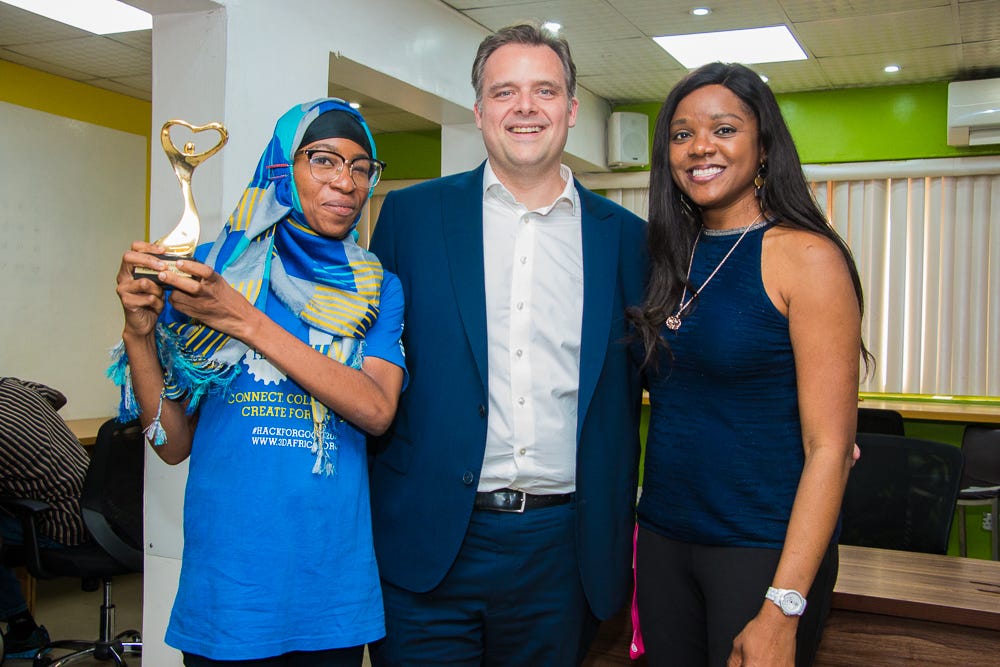
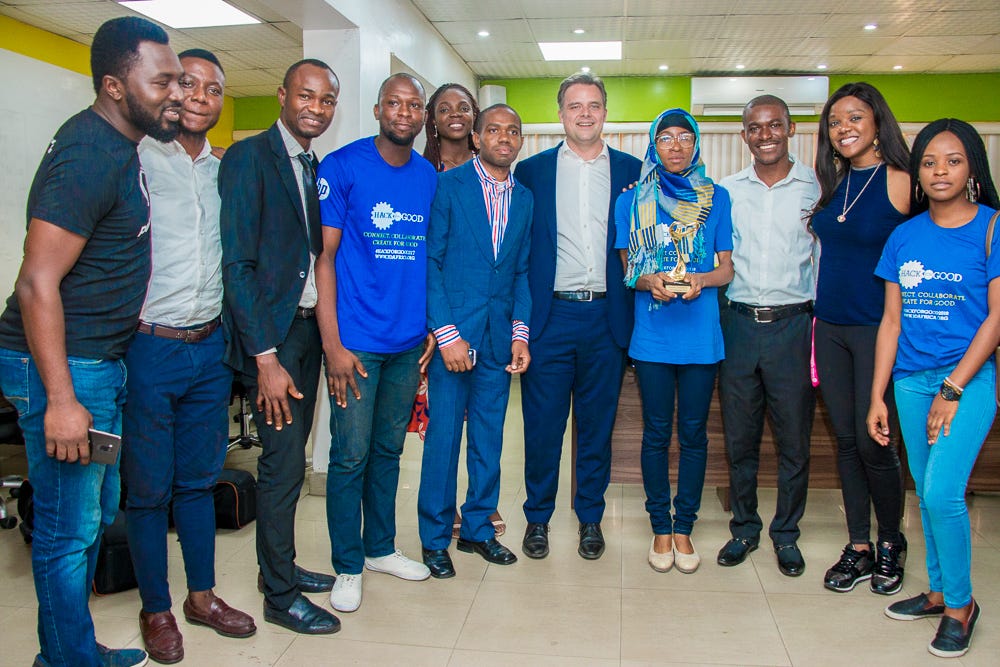
Later that afternoon was spent in Yaba, with visits to the Facebook Artificial Intelligence hub, LifeBank and Jumia.

YTF and Supporting Hardware Startups
On the final day of the mission, YTF (in partnership with GE Garages) hosted a session: “Building a viable hardware ecosystem in Nigeria,” which was based off our successful track record of implementing 3D Africa and the HackforGood innovation accelerator in Nigeria. The session explored the role of emerging technologies like 3D printing and provided an overview of the entrepreneurial landscape, particularly in the hardware space. YTF invited four of our accelerator startups and two from GE Garages to pitch to the Belgian entrepreneurs, investors and innovators.

Four million university students graduate each year in Nigeria, but nearly 87% remain unemployed after graduation.Through our experience working with students, startups and scaleups in the hardware space, we know this to be true: Hardware is hard. The ecosystem in Nigeria doesn’t understand the maker culture or that prototyping takes time. Just as we have co-working spaces for software companies, makerspaces are crucial for building innovation, fostering a community and transmitting the message of the hardware space in a way that will be understood by professionals in the larger ecosystem.
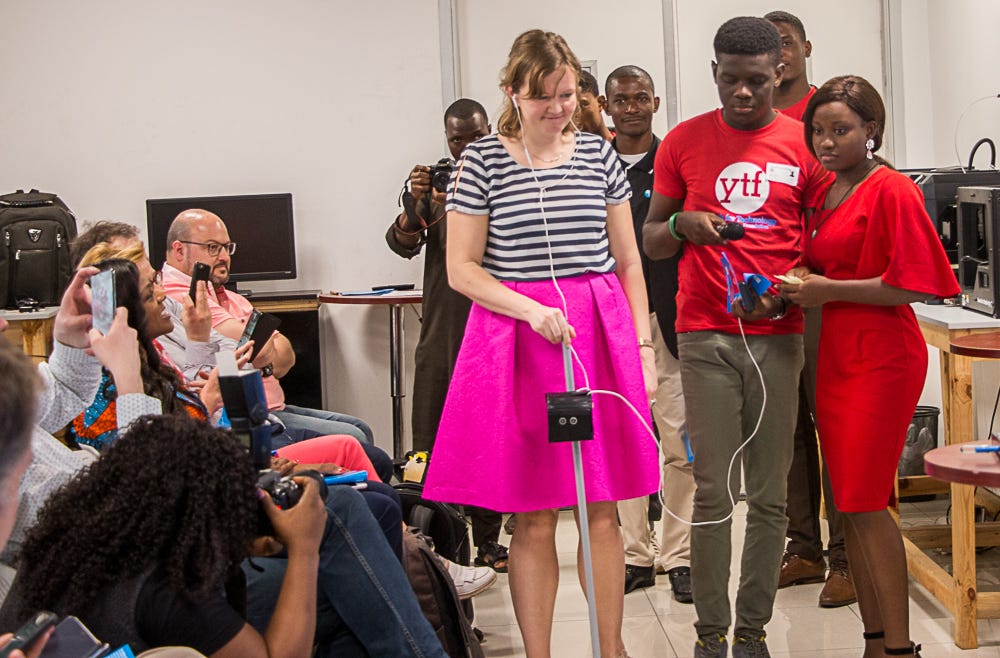
Whether we are looking to inspire new ways to manufacture and produce goods in established nations or to introduce more efficient means of growing economies in countries that currently lack the infrastructure to support this degree of short-run manufacturing, 3D manufacturing eliminates the red tape and distribution challenges that inhibit creative entrepreneurs and dramatically increases speed to market for every small and medium business.
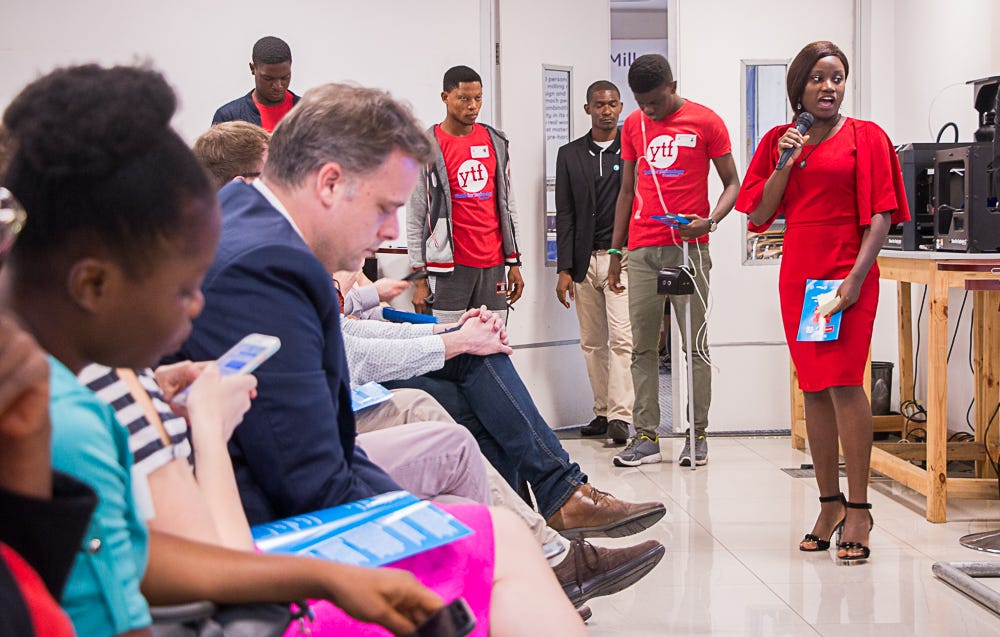
Bringing these skills to mainstream students will give them the opportunity to take advantage of a changing economy, allowing them to be the leaders and not merely followers or, worst of all, the ones watching from the sidelines as life and prosperity pass them by.
As we embark on the Fourth Industrial Revolution, it is clear that technology will play a central role in nearly all aspects of our lives. According to McKinsey, by 2025, 66% of global demand will come from emerging markets. The most pressing drivers to capture the opportunity presented by 3D printing is the development of people and their skills. According to research by the World Economic Forum, 65% of children entering primary school will one day find themselves in occupations that today do not exist.
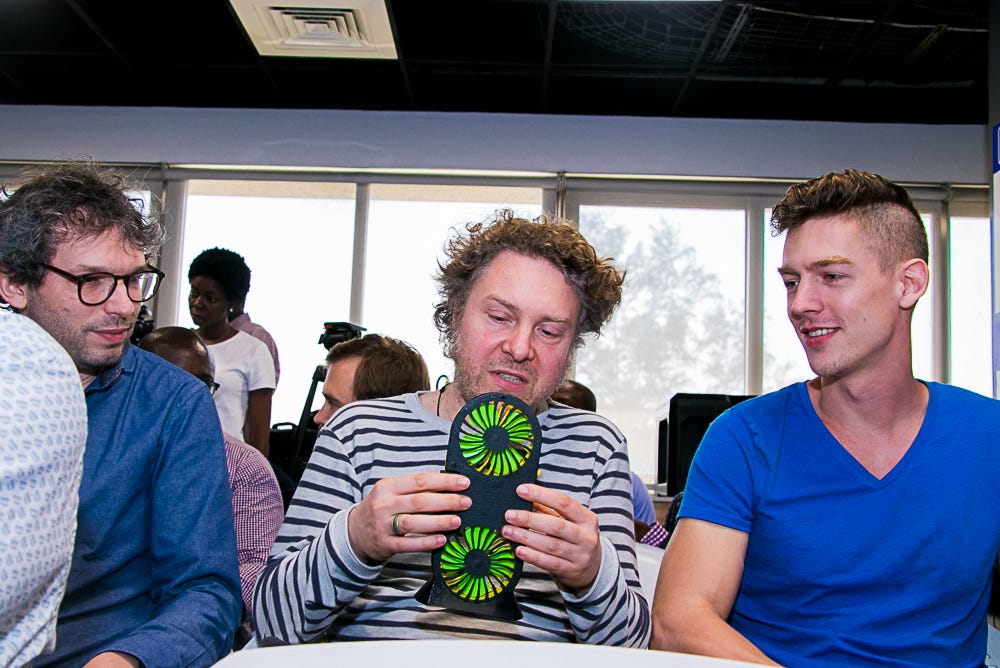
While nonprofit organizations like YTF have led the way in ensuring that young people growing up in developing countries have the right skills for the future of work, we cannot do this alone. As these young people transition into the world of work or entrepreneurship, an environment where the private and public sectors can collaborate is essential. One way the government can help is to enact policies that encourage big tech companies like Google, Microsoft and Facebook to work with Nigerian hardware startups and other companies, as for example through the provision of tax rebates in equipment manufacture or through support of fabrication labs, as in the case of IBM.
Unlocking Talent, Providing Opportunity
As the winner of the co-creation workshop, Aminah will be in Brussels this week, meeting with Belgian startups and visiting BeCentral’s ecosystem-Becode, Google Ateliers and others. In addition, she will visit eWala and tour the VUB-ULB Learning and Innovation Center and Fablab.

For YTF, we have just scratched the surface and there is so much more to do. It’s about changing lives; whether it’s one life or a million lives. For Aminah, this is an opportunity of a lifetime, and we have every reason to believe it will change her world.
